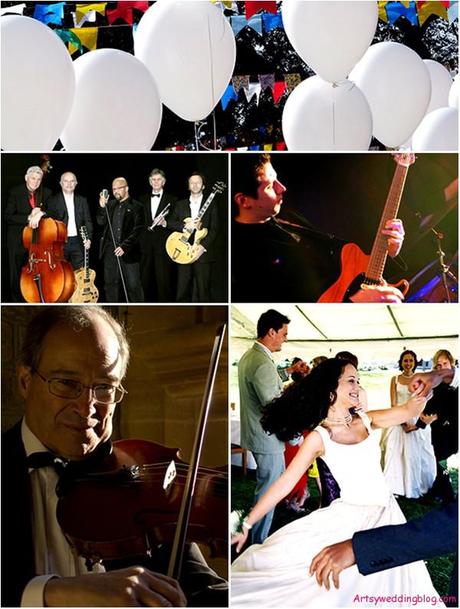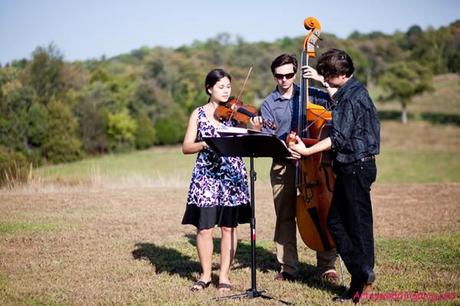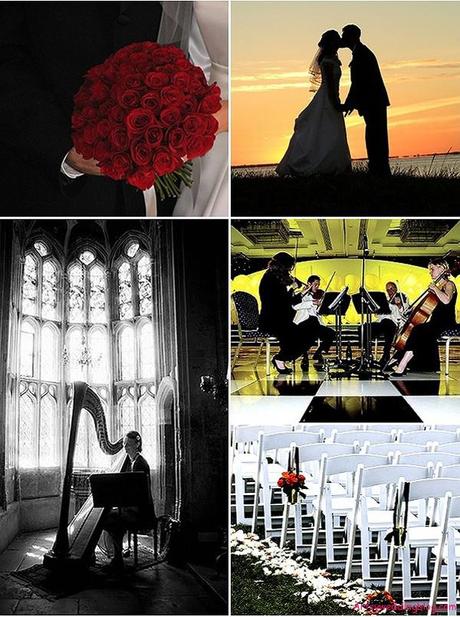Dozens of classical music pieces, although beautiful, have found their places in wedding ceremonies so often that they’ve lost the ability to inspire. That doesn’t necessarily mean that you should be afraid to use such standards. The key is to find musicians who know how to make the music sound as if the pieces are perfect for your wedding. If those pieces aren’t your cup of tea, begin your search by listening to CDs of classical wedding music collections. If you don’t have any luck with that, expand your musical horizons and listen to other classical selections. Consider, for example, such baroque composers as Handel, Marcello, and Quantz.


Before you get your heart set on a particular piece of music, check to see if a solo organist can play it or if it works for the number of musicians in the group you’ve contracted. Some of the musical pieces that you consider may only work for entire orchestras or may call for specific instruments that aren’t in your ensemble.

Generally, we recommend getting a list of approved or suggested musical selections if you’re marrying in a religious venue. Don’t assume that your selections, even if they’re standard, will coincide with the church’s guidelines. For many Christians, having the “Wedding March” (commonly known as “Here Comes the Bride”) from the Wagner opera Lohengrin as the processional and Mendelssohn’s “Wedding March” from A Midsummer Night’s Dream as the recessional are as integral to their ceremony as the vows. Conversely, many churches don’t allow those pieces, as they’re secular rather than religious. Most synagogues don’t allow those selections either, because Mendelssohn converted to Christianity and Wagner was a notorious anti-Semite.

Choosing ceremony musicians
If your house of worship provides the musicians for your ceremony, you won’t need a contract, just a confirmation of timing and fees. If you’re hiring an independent soloist, quartet, or other musical entity for your ceremony, you’ll want to get all the particulars in writing.

The music directors in churches and temples are well versed in both the possibilities of ensembles for your ceremony as well as choices the officiant deems appropriate. Most likely, if you’re conducting your ceremony at a site other than a house of worship, you’ll have far more freedom in creating your musical program. Either way, when interviewing musicians for your ceremony, be sure to cover the following questions, and take notes:

Do they have a sample tape they can send you?
Will the musicians on the tape be the ones playing at the ceremony?
Have the musicians worked at this venue before? If not, will the leader have a short meeting with the person in charge?
Can the musicians give you some direction on musical choices for various parts of the ceremony?
If you want a particular piece of music, can the musicians configure it for your ensemble? How long will that take, and for what fee?
If you hire a soloist or other group for the ceremony, will the musicians have a rehearsal with them?
How many hours are included in the quoted price? If the ceremony goes over the expected time, is overtime available?
What will the musicians wear?
Do the musicians have any special requests — armless chairs, music lights, tenting for outdoor ceremonies?
Can they be available for your rehearsal? Do they charge an additional fee? Note: If you’re having an elaborate ceremony and feel that the cues are complicated, you might want to negotiate a price to have the group (or at least the leader) be present at the rehearsal.

